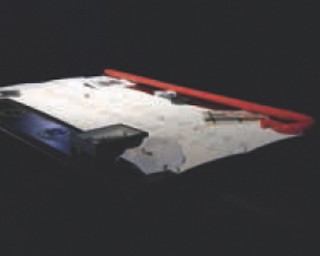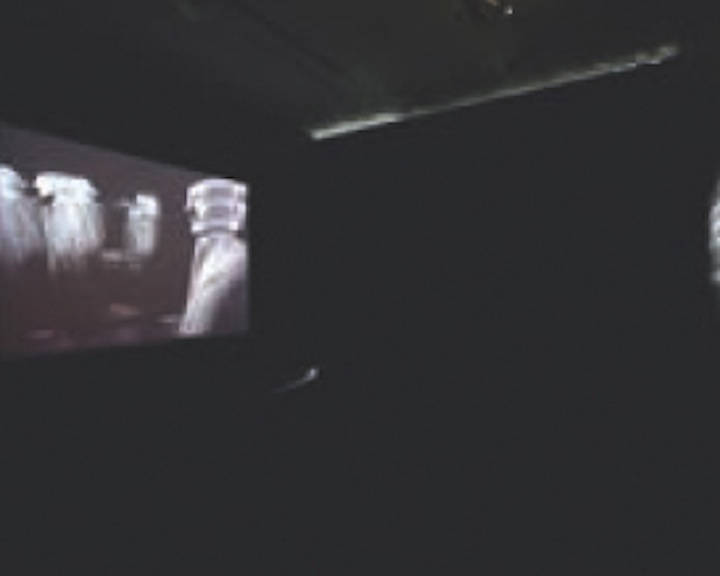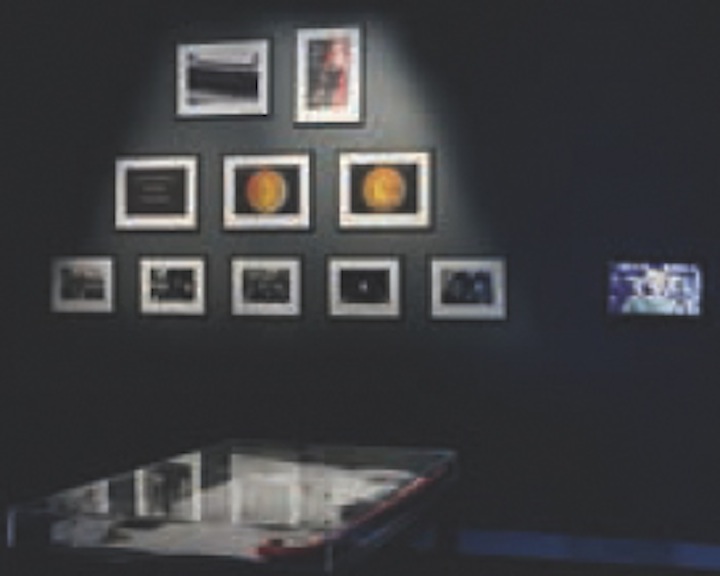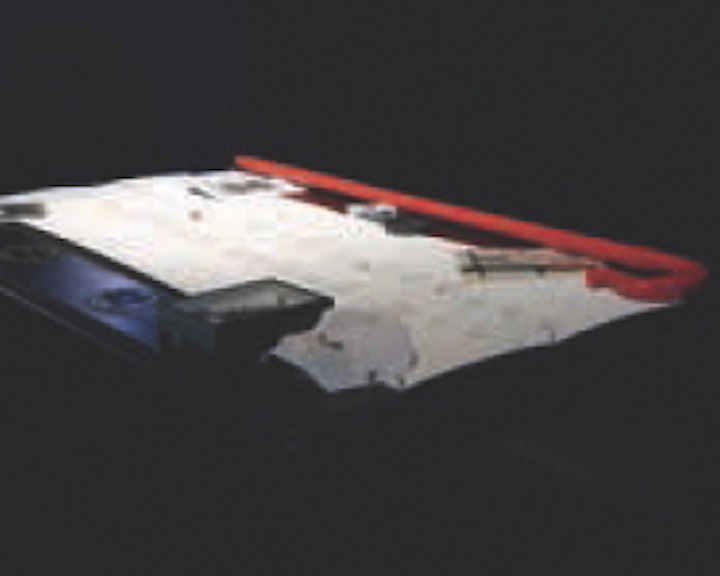Beckett
Mixed-media installation
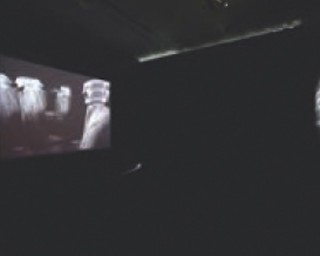
Shipwreck is one of Conomos’ most overtly existential works. The title comes from Orson Welles and Charles de Gaulle. Welles quoted de Gaulle’s remark on old age in an interview recorded shortly before Welles’ death. Shipwreck principally explores being and death through Welles, a figure who represents the ups and downs in life on a scale comparable to his creation, Charles Foster Kane. This sense of being as defined by death was explored not only by Heidegger but also by Hegel, who said that death was the ultimate negative. But as Critchley points out, for the Greeks too, life’s purpose was learning how to die.
On the walls of Shipwreck, neon lights spell out quotes: Eva Hesse’s claim that ‘Life doesn’t last; art
doesn’t last’, and John Giorno’s statement, ‘life is a killer’. In both quotes there is not just a reflection on existential dilemmas, but a provision made for hope: life ends, and art dies, but mortality is always the condition for life, and so for the further generation of art. Hesse’s quote ties art and life together: both are directed towards death.


